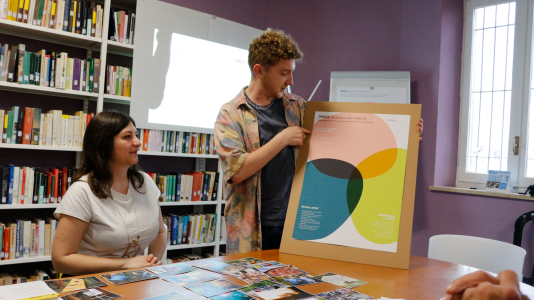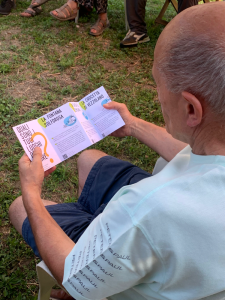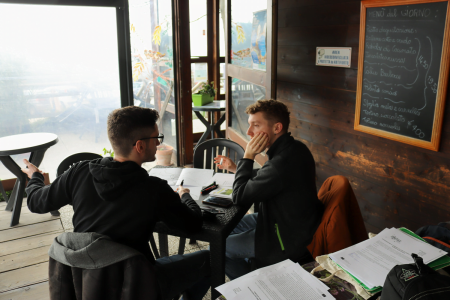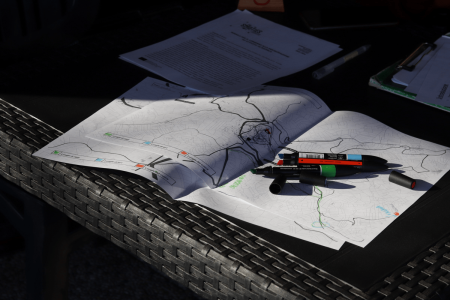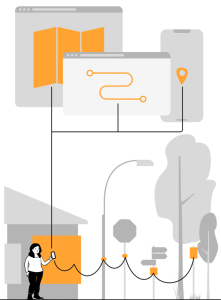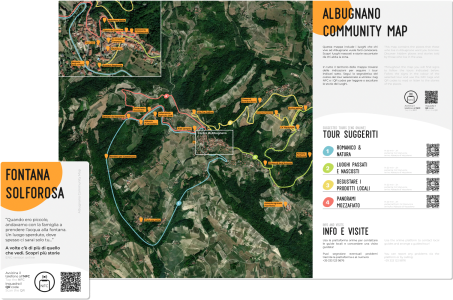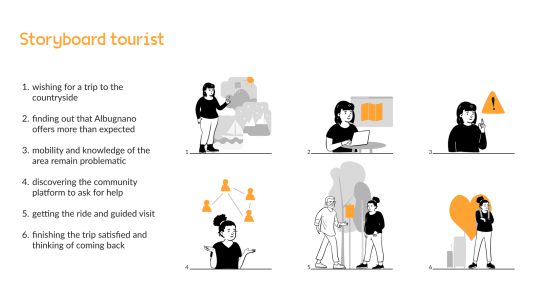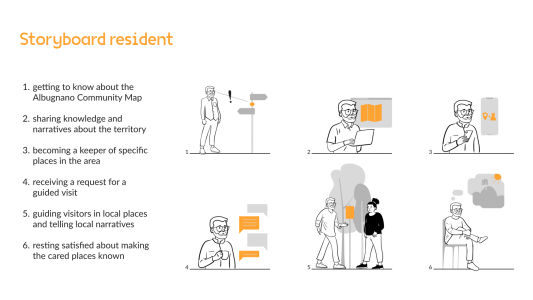2022-2024 @Polimi DESIS Lab, Politecnico di Milano
SMOTIES
A research project that investigates co-design in rural areas by envisioning distant futures, taking short-term actions towards the development of remote areas.
#codesign process
#service design
What did I do?
Design research and MSc Thesis about participatory approaches
Researched participatory approaches from the artistic and design field, envisioning a relational approach to service design and a PSS concept.
Co-design process for the creation of a community space
Structured processes to enable communities and stakeholders to co-design around the same table, creating tools and facilitating sessions.
////////////////////////////////////////////////////////////////////////////////////////////////////////////////////////////////////////////////////////////////////////////////////////////////////////////////////////////////////////////////////////////////////////////////////////////////////////////////////////////////////////////////////////////////////////////////////////////////////////////////////////////////////////////////////
Remote places have plenty of cultural, natural and agricultural resources but struggle to organise and promote them
Albugnano, a small and remote village with 500 inhabitants, offers Romanic heritage, hiking trails, renowned wine and hazelnut varieties, and a peaceful landscape. But, despite the local associations promoting its attractions, it still struggles with drawing visitors to spend more than one night in town.
Local narratives and meaningful places enable a deeper engagement of the local community
- 4 interviews with experts
- 15 narrative interviews with local citizens
- 3 ethnographic observations
- 1 published research paper
We want Albugnano to thrive, because if Albugnano grows, we grow together.
Interviewee - 20y old, Albugnano
The digital community map supports locals in taking care of their territory, guiding visitors through unwritten stories and hidden places.
- 5 co-design workshops
- 4 sense-making internal sessions
- 1 testing activity on-field
Long story short
Challenges
> Moving to a rural context exposed how the team was used to an urban culture: the need was to profoundly rethink tools, languages and approaches to deal with another rhythm of life.
> Designing a space risked to shift our focus away from a systemic discourse: re-integrating constantly a service perspective was needed.
> Working in such a small town highlighted how our intervention had – positive and negative – unexpected impacts on local dynamics.
Organisations
“Human Cities / SMOTIES” by Human Cities Network and led by Polimi DESIS Lab, Design Department, Politecnico di Milano
Co-funded by the Creative Europe Programme of the EU
People
Davide Fassi, Annalinda De Rosa, Valentina Auricchio, Paola Russo, Vanessa Monna, Alexandra Coutsoucos, Marco Finardi, Nadia Pirovano, Martina Bon.
Challenges
> Moving to a rural context exposed how the team was used to an urban culture: the need was to profoundly rethink tools, languages and approaches to deal with another rhythm of life.
> Designing a space risked to shift our focus away from a systemic discourse: re-integrating constantly a service perspective was needed.
> Working in such a small community highlighted how our intervention had unexpected impacts on local dynamics, even beyond the co-design activities.
Organisations
“Human Cities / SMOTIES” by Human Cities Network and led by Polimi DESIS Lab, Design Department, Politecnico di Milano
Co-funded by the Creative Europe Programme of the EU
People
Davide Fassi, Annalinda De Rosa, Valentina Auricchio, Paola Russo, Vanessa Monna, Alexandra Coutsoucos, Marco Finardi, Nadia Pirovano, Martina Bon.

